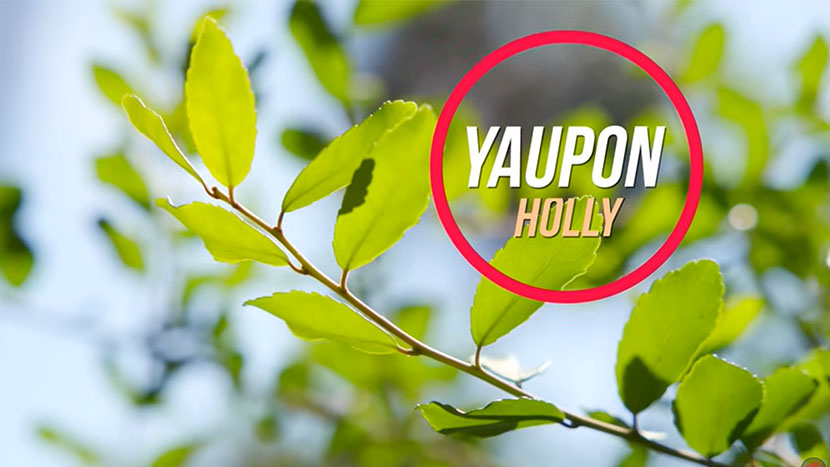North America’s Only Caffeinated Plant: Yaupon Holly
There are various plants that contain caffeine in the world and are consumed by people – the most famous being coffee – but there is only one plant in all of North America with this energy-boosting compound. Yaupon holly (Ilex vomitoria) is the only native plant in North America that produces caffeine, but luckily for those who live in the Southeastern United States, it is easy to find and even easier to make into your own tea!
Why Do Plants Produce Caffeine?
Oddly enough, caffeine is a compound originally produced by plants as a defense mechanism – especially against herbivory by insects. That’s to say that caffeine is supposed to stop things from eating the plant. Humans however have developed a great liking to it and we now cultivate over 60 of caffeine producing plants around the world. This includes coffee, cocoa, guarana, tea tree (Camellia sinensis), and the holly plants yerba mate (Ilex paraguariensis) and its lesser known cousin yaupon holly.
In the end, caffeine has actually still been beneficial to plant survival because the desire for plants containing caffeine by people has allowed these plants to be cultivated not only in their native range but around the world. So in the end, though this was not its original purpose, the evolution of caffeine has made these plants incredibly successful.
Why Do People Love Caffeine?
Caffeine is a stimulant, helping people to feel more awake and energized. Though dangerous in high amounts, and quite addictive, caffeine helps people feel more awake, is an important part of culture, is essential to many people’s daily routines. Additionally, caffeine can even be beneficial for exercise and athletic performance in the right doses.
How Caffeine Works
Caffeine is a stimulant that binds to our adenosine receptors, stopping them from functioning properly. Why does this matter? Well, even though the mechanism is still not entirely understood, adenosine is an important part of what causes us to be tired and eventually fall asleep. Caffeine also has various impacts on other hormone systems, like dopamine and adrenaline, and even our cardiovascular system – which is why many people who are used to having coffee everyday get a headache if they don’t drink any.
Here’s a quick video that shows explains how caffeine works with the adenosine receptor:
Yaupon Holly and Caffeine
Yaupon Holly is another plant that produces caffeine to avoid herbivory, and lucky for us can be made into a nice tea – just like green or black teas you might be more familiar with. Just like other tea, the leaves are simply collected, dried, and put into hot water to be enjoyed!
Yaupon holly’s more well-known cousin yerba mate is another example of a staple tea in Argentina, Brazil, and Paraguay, where it grows naturally. Yaupon holly can be consumed in the same way, and though not many people know about it today, yaupon holly has been an important plant of various native american tribes in the SE United States for a long time.
You can head to our sister site StoneAgeMan.com to read more about this plant, including history and identification as well as how to make yaupon holly tea!

































































































